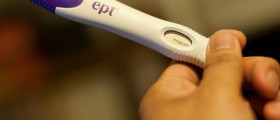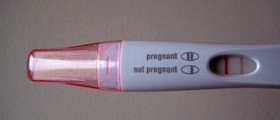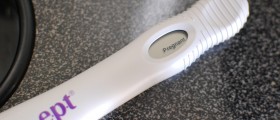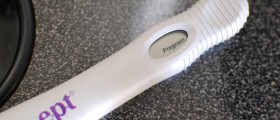
An implantation bleeding is definitely one of the more obvious early pregnancy symptoms, and one that nearly a third of all pregnant women reportedly experience. An implantation bleeding is said to occur after the fertilized egg implants into the uterus, leading to a slight irritation of the uterine wall that causes a little light spotting. It is important to note that, although implantation bleeding is a much-talked about phenomenon among groups of women who are trying to conceive, there is very little scientific evidence that the implantation of an embryo leads to bleeding.
If you have had light spotting, and you are keen to find out if this spotting was caused by an implantation bleeding or something else, when can you take a pregnancy test?
Implantation bleeding tends to take place a while after ovulation, because that is when implantation itself can occur — a week to ten days, on the whole. It is not realistic to expect implantation before this time frame, and any bleeding immediately surrounding the time of your ovulation is more likely to be an ovulation bleeding, instead.
I completely understand any woman who had what she thinks was an implantation bleeding, and who wants to take a pregnancy test immediately. But how accurate would the results of a pregnancy test be when taken so early on?
Of course, there are sensitive early pregnancy tests out there, which can detect the tiniest amounts of hCG of h-HCG in your body up to a week before your period was due to start. Still, it is not very likely that you will get a positive pregnancy test immediately after an implantation bleeding.
If you want to know how soon after an implantation bleeding you will be able to get a positive pregnancy test, the answer depends on the length of your luteal phase, and the timing of your implantation spotting. Sure, taking a pregnancy test a bit too early and seeing a negative result has never done anyone any harm, but it does seem a bit pointless.
The timing of pregnancy tests does not depend on your other symptoms. If you noticed light spotting, or are extremely tired, or are feeling nauseous, you might just have been given a few advance clues that you have indeed conceived this month. But these symptoms do not mean that you can take a pregnancy test any earlier than other women. Those women who have an implantation bleeding get the best test results on the day after their missed period, just like everyone else.
















Your thoughts on this
Loading...